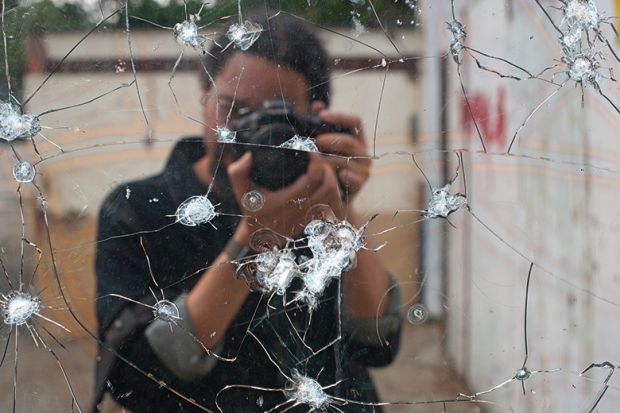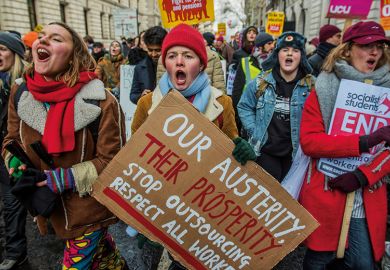It is a little over three years since the untimely death of Sir David Watson, one of the great thinkers of UK higher education.
His perspective was always worth paying attention to, and he had a memorable turn of phrase that, amid the blizzard of higher education seminars, lectures and speeches that one sits through, tended to stick in the mind. A personal favourite was his assessment of UK mission groups back in 2014, when he spoke witheringly about the undue influence of the lower half of the Russell Group, a collection of universities that he billed the “bottom Russellers”.
Another insight of Sir David’s that has stayed with me was delivered at a seminar at the House of Commons, when he pointed out that higher education in the UK was the only level at which starting a course and failing to finish it was actually worse for one’s prospects than never starting at all.
If you go to school and drop out, start A levels but don’t make it to the end, you will still go on to earn more than if you hadn’t bothered in the first place. Not so for university education, he said.
In his final contribution to the higher education policy debate, a paper published posthumously in late 2015, Sir David called, in particular, for lifelong learning to be taken more seriously. For an end to the idea that one’s first attempt at a degree is one’s only attempt.
It is an idea that has come of age with the increasing sense that the clock is ticking on labour markets as we know them – that the advent of artificial intelligence and the so-called fourth industrial revolution will mean that retraining and reskilling will become part of life for all.
Sir David’s final scholarly intervention also sounded a warning about the trajectory that students had been set on in the high-fee era.
In England, he said, undergraduates had been reduced to “state-sponsored Wonga-style customers”; you can see what I mean about that turn of phrase.
Fast forward three years, and these are tumultuous times for higher education in England in particular, and Sir David’s pithy critique is much missed.
What would he have made of the Office for Students, which officially launched last week, after a difficult prenatal period summed up by the botched, politicised appointment of its board (details of which are now becoming clear, and can be found in our news pages)?
How would he have framed the various threats that are swirling around the UK sector – the plunging temperature of the public debate in particular, which has often been reductive and ill-informed, but which is no less real – or dangerous – for that?
How, as a former vice-chancellor, would he have viewed the response of university leadership to this crisis of perception and legitimacy, to the handling of the pensions issue that has provoked damaging strikes, or to the fees and funding debate, which has spawned a dangerous review?
It is always risky to take a temperature and diagnose major illness on the back of a string of bad headlines, the substance of which does not always represent journalism at its finest.
But it doesn’t seem too hasty, just now, to suggest that higher education in the UK is in fairly big trouble. It is not winning the arguments, if it is even making the right ones; it is missing that persuasive turn of phrase, the combination of evidence and emotional connection that carries the day.
In our cover story this week, we hear from an economist at George Mason University in the US, who offers a bleak assessment of higher education’s worth, to individuals as well as to society.
You probably won’t like what you read; you probably won’t agree with it. But it is, at least, an academic critique of universities that explores the issues that are bubbling up in the public consciousness in many countries, the US and UK included.
That is worth having. Universities are, ultimately, about independent, objective analysis and critique. And critical selfreflection is essential if they are to build the truly robust evidence base that is needed to shore up their foundations.
Register to continue
Why register?
- Registration is free and only takes a moment
- Once registered, you can read 3 articles a month
- Sign up for our newsletter
Subscribe
Or subscribe for unlimited access to:
- Unlimited access to news, views, insights & reviews
- Digital editions
- Digital access to THE’s university and college rankings analysis
Already registered or a current subscriber?




